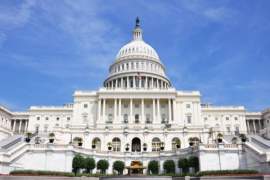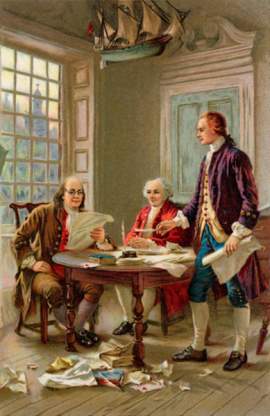
Who Is Alexander Hamilton

Popular In Constitution
Purpose Of Lifetime Appointment And Pros And Cons Enumerated Powers Bicameral Legislature Background Article 3 Of The Constitution We The People 1st Amendment Who Wrote The Constitution Judicial Review Equal Protection Clause 5th Amendment 10th Amendment Three Fifths Compromise
Alexander Hamilton represented New York at the Constitutional Convention and staunchly supported the creation of a unified and powerful central government. Hamilton was a leader of the Federalist Party who transcended loyalty to local states or regions, and instead opted to focus on strengthening the nation through the implementation of a fully functioning federal government. Like many Federalist members, Hamilton was a great skeptic of the individual, concluding that a successful nation needed an able central government to properly enforce the code of law, taxation, and protection against other countries.
Although Hamilton was the first delegate chosen to
the Constitutional Convention in 1787, his vote and word were rendered
powerless due to disagreeing votes by New York delegates John Lansing and
Robert Yates. Hamilton's wishes of an empowered central government were made
controversial due to his alleged admiration of the British Monarchy. Hamilton
proposed a "lifelong" President and Senate which would remain in
power until death or corruption had tainted the office.
The Federalist Party was constantly in debate with prominent Anti-Federalist members George Mason and Thomas Jefferson over the inclusion of individual liberties within the United States Constitution. Hamilton, a staunch supporter of a potent national government, believed that the inclusion of civil liberties within the Constitution was superfluous for individual rights are inherently or implicitly included in the documents.
As a result
of previous authoritative rule, many of the delegates at the Convention supported
a balance of powers between Federal and State governments, while maintaining a
series of rights awarded to the individual citizen. Aware of his position and
lacking political savvy, Hamilton decided against the proposal of his intended
Constitution which included similar clauses such as: Senators were to be
elected based on the country's population, the President should be elected
based on a difficult multi-stage process, the Supreme Court was to have
jurisdiction over lawsuits involving the United States, the President was to
have absolute veto power, and State governors were to be appointed by the
national government.
When the Convention concluded, Alexander Hamilton
was not pleased with the drafted Constitution. Although Hamilton still yearned
for an empowered form of central government, he still signed the document and
urged his fellow supporters to do the same. Hamilton viewed the Constitution as
a vast improvement over the previously adopted Articles of Confederation and
decided to compromise with his opposition.
Immediately following the adoption, Hamilton rallied a group together and attempted to spark a ratification process through the creation of Federalist publications. Hamilton recruited James Madison and John Jay to write articles stressing the importance of a powerful Federal Government with the ability to raise taxes. The Federalist Papers contained 85 articles documenting the need for America to possess constant funding and pointing out the weaknesses of the American Constitution.
The
intentions of the Federalist Papers were to interpret the Constitution to the
masses while attempting to sway votes and sentiment towards a ratification
process. Although Madison jumped ship and later created the Bill of Rights, the
Federalist Papers were influential in sparking the ratification process of the
early Constitutions.
Shortly after the Federalist Papers stopped
circulation, Alexander Hamilton was appointed the Secretary of the Treasury in
1789. Appointed by George Washington, Hamilton was viewed as an economic genius
and is regarded as greatly contributing in the structural creation and cabinet
roles of the United States Government.
Hamilton's greatest contributions come in the form of finance and the institution of novel taxes such as excise levies on whiskey. Alexander Hamilton was constantly perturbed by the nation's debt and the organization of proper national funding. Through Hamilton's efforts, the First National Bank was created and the American financial system was greatly streamlined through extensive reports on manufacturing, public credit, and debt.
NEXT: Benjamin Franklin





















